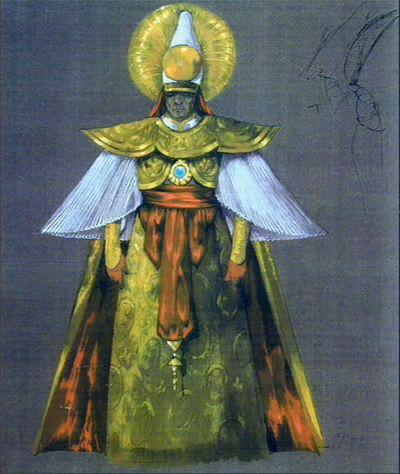For two hundred years the Jrusteli dynasty ruled as the Emperor of the Land and Sea. This was a new title, created in 789 with the acclamation of the Jrusteli Alliance, the Umathelan Coalition, and the Kingdom of Seshnela-Tanisor. At the time, the people acknowledging the Emperor of the Land and Sea as suzerain likely numbered 15-20 million or more, making it easily the largest empire in Gloranthan history.
The Emperor of the Land and Sea was the subject of cult, associated with the Runes of Man, Luck, and Mastery. He was often associated with Water as well, as the Emperor had no fixed capital until the oceans were Closed off in 930. Instead, the emperor traveled from land to land upon his Imperial Fleet. Guided by a friendly Naiad (water goddess), he had a hundred gilded battle barges, each with its own protective water and air elementals. This armada included some 20,000 sailors, Wachaza-worshiping marines, cavalry with horses, sorcerers, bureaucrats, and entertainers – a mobile metropolis! These ships were moved by water and air elementals and used sorcery to command the waters.
Imagine the Imperial Fleet as it came near a port, with huge sails and impossibly tall, yet with a shallow draught that allows it to unload several thousand cavalry almost anywhere. Fearsome bodyguards, sorcerers, imperial officials, musicians – but at the very apex is the Emperor of Land and Sea. This is a figure of awe and dread, far richer, far more magnificent, far more dreadful and awesome than the priest-king of Dara Happa or the Dragon Emperor of Kralorela. This is the Mortal Ruler, a mortal peer of the immortal gods, subject only to the Invisible God. He dines on pearls and drinks out of Falangian Diamonds.
Across the world, people offered cult to the Divine Fortune of the Emperor, a manifestation of the luck and fortune that made and preserved the Middle Sea Empire. This fortune was lost by Emperor Ilotos around 910 or so, and by 990 the Middle Sea Empire was no more.
![]()
![]()
This was the high point of Malkionism. A world-emperor, subject only to the Invisible God, who was perfectly fine with having Wachaza-worshipping marines and bodyguards, tamed gods and goddesses, and whose sorcerers could summon and command other gods to aid him.
Among the peoples of the Middle Sea Empire, the cult of the emperor likely resembled a Daka Fal ancestor cult, with the emperor being elevated to surpass the mighty gods.

